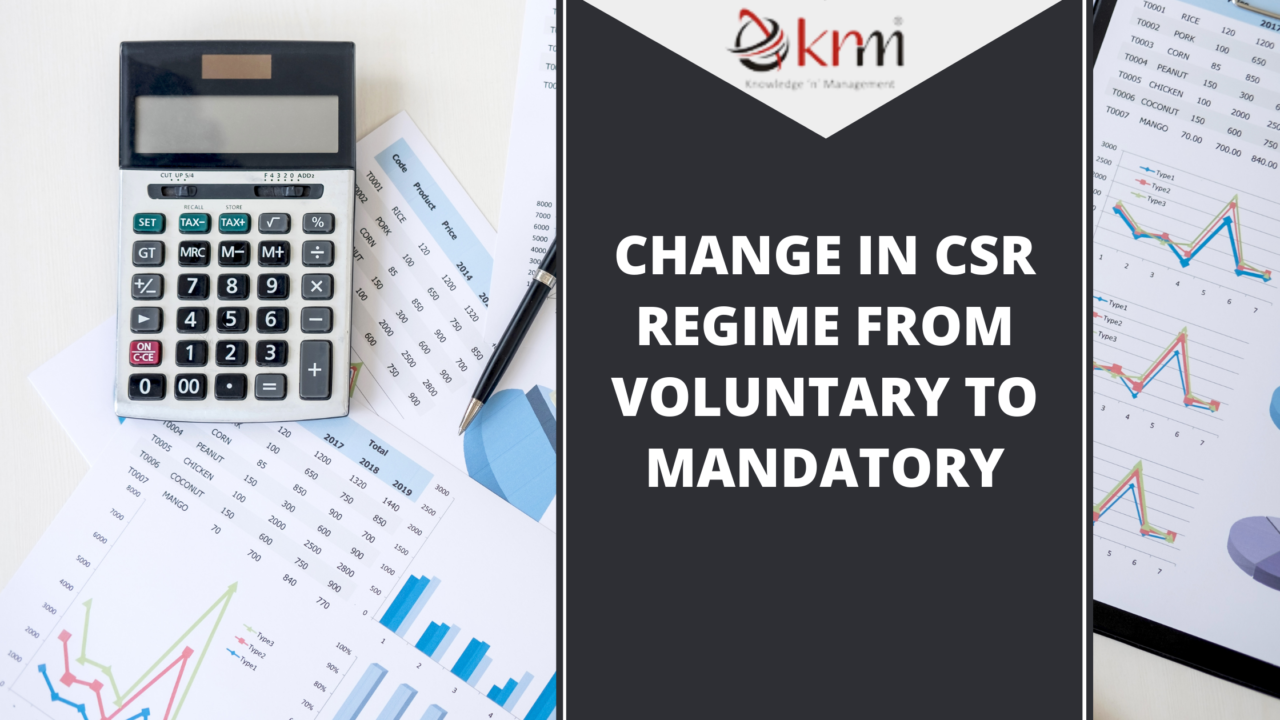Introduction:
Central government (MCA) has amended provisions of CSR under section 135 by Companies (Amendment) Act, 2020, imposing a statutory obligation on Companies to take up CSR projects. This has made India the only country that has regulated and mandated CSR for prescribed companies.
The amendment introduced new concepts like negative list for CSR Expenditure, mandatory treatment of unspent amount, set-off of excess spend amount, and provisions for a penalty on company and officers in default, in case of non-compliance.
As per the provisions of Section 135 of Companies Act, 2013, provisions of CSR apply to every company satisfying any of the following criteria in the preceding financial year:
(a) the net worth of 500 crores or more;
(b) turnover of 1000 crore or more or
(c) having a net profit of 5 crores or more during the immediately preceding financial year.
Such companies shall constitute a CSR Committee of the Board consisting of three or more directors, out of which at least one director shall be an independent director. Where a company is not required to appoint an Independent Director, it shall have in its CSR committee two or more directors.
-
Mandatory Expenditures on CSR
It is the responsibility of the Board to ensure that the company spends at least 2% of average net profits made during the three immediately preceding financial years or where the company has not completed the period of 3 financial years since its incorporation, during such immediately preceding financial years.
-
No Failure in case of ongoing CSR project
If the company fails to spend such amount, the Board shall specify the reasons for not spending the amount in Board Report and unless the unspent amount relates to any ongoing project, transfer such unspent amount to a fund specified in schedule VII, within a period of 6 months of the expiry of the financial year.
-
Allowed to set off the excess amount spent
If a company has spent an amount in excess of the mandatory requirement of 2%, the company can set off such excess amounts against the amount to be spent in the next three Financial years.
-
Treatment of the “unspent” amount:
Second proviso to sec. 135 (5), read with section 135 (6), gives an option to the company to deposit an unspent amount.
- The unspent amount relating to an ongoing project shall be transferred to “Unspent CSR Account” with a Scheduled Bank within a period of 30 days from the end of the financial year and used within a period of 3 Financial Years from the date of such transfer in pursuance to CSR policy and failing which, the company shall transfer the same to a Fund specified in Schedule VII, within a period of 30 days from the date of completion of the 3rd financial year or else,
- Unspent amount not relating to ongoing projects shall be transferred to Funds notified in Schedule VII, within a period of 6 months of the end of the financial year
-
Penal Provisions
If a company is in default in complying with the provisions of Section 135(5) or 135(6) of the Companies Act, 2013, the company and the officer in default shall be liable to a penalty.
Penalty on Company
- Up to twice the amount required to be transferred by the company to the Fund specified in Schedule VII or the Unspent CSR Account, as the case may be, or
- 1 Crore, whichever is less.
Penalty on every officer who is in default
- 1/10th of the amount required to be transferred by the company to such Fund specified in Schedule VII, or the Unspent CSR Account, as the case may be, or
- 2 Lakhs, whichever is less.
Conclusion
Initially, when the companies act 2013 was introduced, there were no penal provisions for not spending prescribed expenditure on CSR. Disclosure in the Board Report for reasons of non-spending of the amount was sufficient. The Companies (Amendment) Act, 2020, and Companies (CSR Policy) Amendment Rules 2021 have overhauled India’s CSR regime. Now, the government has a carrot and stick policy towards CSR. Non-spending of prescribed amounts on CSR by corporates may face serious repercussions.



